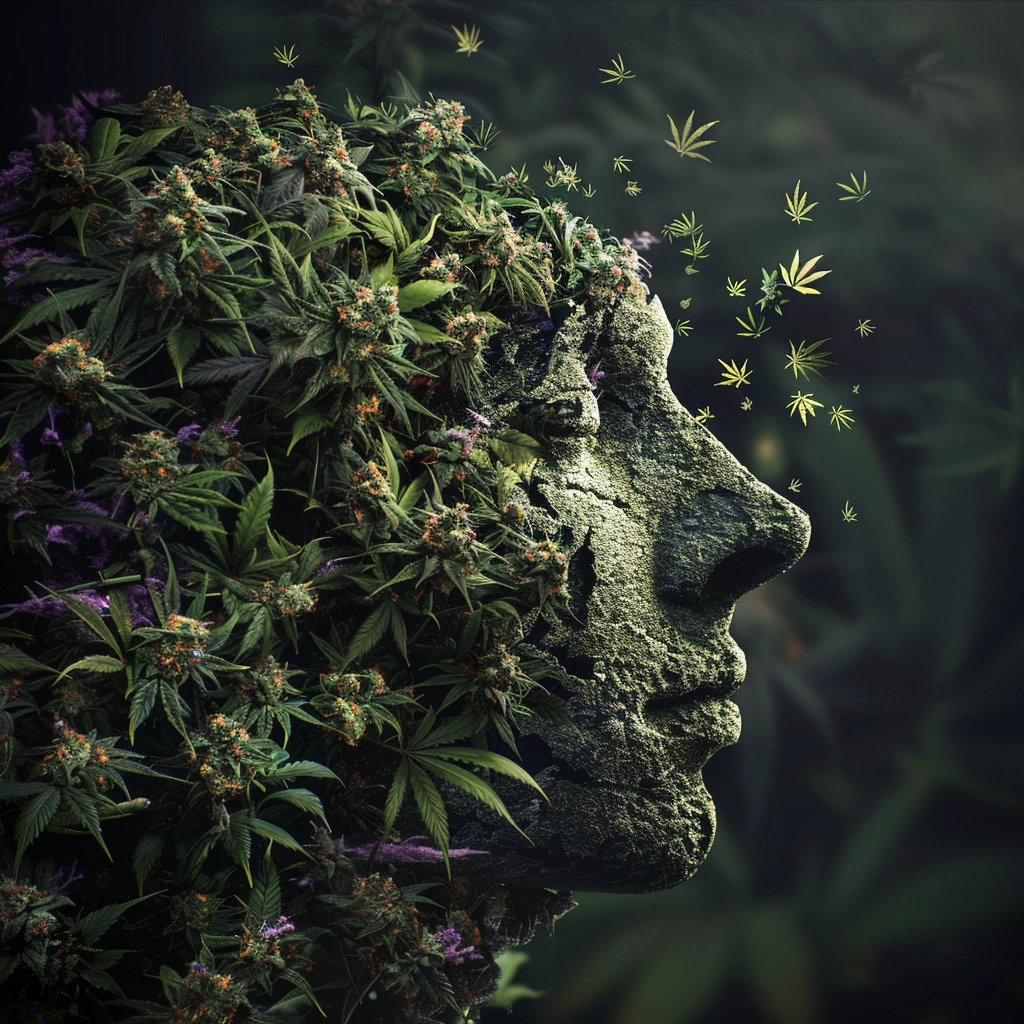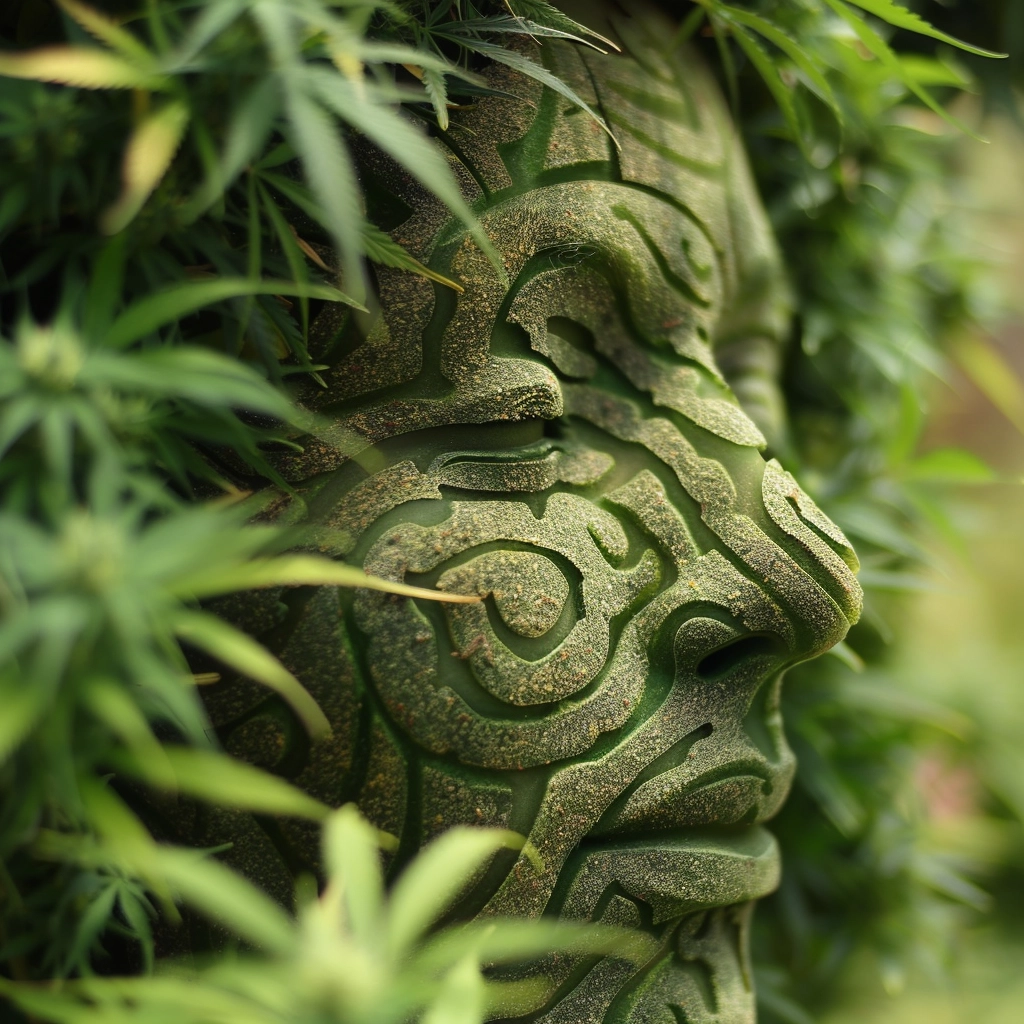In the intricate landscape of mental health, where traditional treatments sometimes wander in the shadows, a green beacon of hope flickers on the horizon: medical cannabis. This ancient plant, long entwined with human culture and controversy, is now emerging as a potential ally in mental health treatment. As the dialogue around mental health evolves, so too does the exploration of cannabis’s role in healing the mind. This journey into the nexus of cannabis and mental health treatment illuminates a path of potential, challenges, and the promise of a more holistic approach to wellness.


Table of Contents
ToggleUnearthing the Roots: Cannabis and the Mind
Cannabis’s relationship with mental health is as complex as the mind itself. The plant contains a plethora of compounds, with cannabinoids like THC (tetrahydrocannabinol) and CBD (cannabidiol) leading the charge in research for their effects on mental health. These compounds interact with the body’s endocannabinoid system (ECS), a vast network implicated in regulating mood, stress, and emotional homeostasis. It’s this intricate dance between cannabinoids and the ECS that sparks both interest and debate in the mental health arena.
THC: A Double-Edged Sword
THC, the psychoactive herald of cannabis, wields a double-edged sword. On one hand, it has shown promise in alleviating symptoms of conditions such as PTSD (Post-Traumatic Stress Disorder) by reducing nightmares and easing anxiety. On the other, its psychoactive properties can exacerbate feelings of anxiety or paranoia in some individuals, highlighting the need for cautious, personalized treatment approaches.
CBD: The Calming Counterbalance
CBD, on the other hand, has garnered attention for its potential to soothe without the high. Studies and anecdotal evidence suggest CBD may help manage anxiety, depression, and even the complexities of schizophrenia. Its non-psychoactive nature makes it an appealing option for those wary of the mind-altering effects of THC, offering a calmer journey through the mind’s garden.


The Spectrum of Potential: Cannabis in Mental Health Treatment
The exploration of cannabis in mental health treatment spans a spectrum of conditions, each with its unique challenges and possibilities.
Anxiety and Depression: Lighting the Dark
Anxiety and depression, twin specters haunting millions worldwide, represent a primary focus of cannabis research. CBD, in particular, has shown potential in reducing anxiety levels in various contexts, from social anxiety disorder to general anxiety, offering a glimmer of light in the darkness. Similarly, the mood-modulating effects of cannabis may offer relief for those battling depression, suggesting a future where smiles might be cultivated as carefully as the finest cannabis.
PTSD: Rewriting the Narrative
For those living with the echoes of trauma, cannabis offers a hopeful narrative. Research suggests that cannabis, especially strains high in CBD, can help manage PTSD symptoms by reducing anxiety, interrupting the haunting replay of memories, and improving sleep quality. This potential marks a significant step toward healing for many who have found little relief in conventional treatments.
Schizophrenia and Bipolar Disorder: A Complex Landscape
The role of cannabis in treating schizophrenia and bipolar disorder remains a complex and debated topic. While some studies indicate potential benefits of CBD in managing schizophrenia symptoms with fewer side effects than traditional medications, others caution against the use of THC-rich cannabis, which may worsen symptoms in vulnerable individuals. This complexity underscores the importance of nuanced, personalized treatment plans in mental health care.


Charting the Path Forward: Challenges and Considerations
As the green horizon of cannabis and mental health treatment broadens, several challenges loom. The stigma surrounding both mental health and cannabis use, variability in cannabis strains and potency, and the need for more robust clinical research are but a few hurdles on the path to understanding. Moreover, the personalized nature of both mental health conditions and cannabis’s effects calls for a tailored approach to treatment, emphasizing the importance of patient education, healthcare provider involvement, and ongoing monitoring.
A Call for Comprehensive Research and Open Dialogue
The future of cannabis in mental health treatment hinges on comprehensive research and an open, informed dialogue among patients, healthcare providers, and policymakers. As we delve deeper into the mind’s garden, exploring the therapeutic potential of cannabis, it’s crucial to approach this journey with an open heart, a curious mind, and a commitment to understanding and compassion.
Conclusion: A Green Promise on the Mental Health Horizon
In the quest for holistic mental health treatments, cannabis stands as a promising, if complex, ally. Its potential to ease the burdens of anxiety, depression, PTSD, and other conditions lights a path to a future where mental wellness is nurtured as naturally as a seed in fertile soil. As we navigate this evolving landscape, the fusion of ancient wisdom with modern science holds the promise of a healthier, more balanced mind, opening the doors to a future where mental health care is as personalized, diverse, and natural as the human experience itself.
FAQ: Cannabis and Mental Health Treatment
What is the relationship between cannabis and mental health?
Cannabis has been studied for its potential effects on various mental health conditions, including anxiety, depression, PTSD, and schizophrenia. While some studies suggest cannabis may have therapeutic benefits for certain conditions like anxiety and PTSD, its effects can vary greatly among individuals and can sometimes exacerbate symptoms in others, particularly with high THC strains or in individuals with a predisposition to certain psychiatric disorders.
Can cannabis be used to treat anxiety?
Cannabis, especially CBD-rich strains or products, has shown promise in reducing symptoms of anxiety in some individuals. However, it’s important to note that THC, another major cannabinoid, can increase anxiety in some people. Medical guidance is crucial to navigate its use effectively.
How does cannabis affect depression?
The research on cannabis and depression is mixed. Some individuals report relief of depressive symptoms with cannabis use, possibly due to the effects of cannabinoids on the endocannabinoid system, which is involved in mood regulation. However, chronic use, especially of high-THC cannabis, has been linked to an increased risk of developing depression.
Is cannabis a viable treatment for PTSD?
Emerging research suggests that cannabis, particularly CBD, may help alleviate some symptoms of PTSD, such as nightmares and replaying negative memories. THC has also been used by some PTSD patients to reduce anxiety and insomnia. However, comprehensive clinical trials are needed to better understand its efficacy and safety.
Can cannabis worsen mental health conditions?
Yes, in some cases, cannabis use can worsen mental health conditions. High doses of THC are associated with increased risk of psychiatric effects like paranoia, anxiety, and in predisposed individuals, it may trigger or exacerbate symptoms of psychosis or schizophrenia. It’s essential to use cannabis under medical supervision, especially for those with existing mental health conditions or a family history of psychosis.
What is the recommended approach for using cannabis in mental health treatment?
The recommended approach is cautious and personalized. Starting with low doses, particularly of CBD-dominant products, and gradually adjusting based on individual response and tolerance, is advisable. Continuous monitoring by a healthcare provider, along with comprehensive mental health support, is crucial to safely explore cannabis as a part of mental health treatment.
Are there specific cannabis strains or products recommended for mental health issues?
While no one-size-fits-all answer exists due to individual variability in response, CBD-dominant strains or products with a balanced THC:CBD ratio may be less likely to induce anxiety and are often recommended for mental health issues. Strains and products should be selected based on the patient’s specific symptoms, history with cannabis, and goals for treatment.
How do I start using cannabis for a mental health condition?
Begin by consulting with a healthcare provider experienced in cannabis medicine, who can evaluate your condition, discuss the potential risks and benefits, and provide a recommendation based on your specific needs. They can guide you on the type of cannabis to use, dosing, and monitoring for any adverse effects.
Is medical cannabis a substitute for traditional mental health treatments?
Medical cannabis should not be considered a substitute for traditional mental health treatments but rather a potential adjunct therapy. For many individuals, the most effective mental health treatment plans include a combination of medication, therapy, lifestyle changes, and, in some cases, medical cannabis, tailored to the individual’s needs.
Can anyone with a mental health condition use cannabis?
Not everyone with a mental health condition will benefit from cannabis, and for some, it may be contraindicated. Factors such as the type of mental health condition, history of cannabis use, and individual risk factors (such as a predisposition to psychosis) need to be carefully considered. Always consult with a healthcare provider to determine if cannabis is appropriate for your situation.
These FAQs aim to address common inquiries about the nuanced relationship between cannabis and mental health treatment, highlighting the importance of personalized care and medical guidance.
Kannabu's Online Cannabis Educational Resources
Read Educational Online Guides and Articles to Learn About Cannabis
- Navigating the Green Path: CBD vs. THC in Medical Treatment
- The Aromatic Architects of Healing: The Role of Terpenes in Medical Cannabis
- Navigating the Green Frontier: Clinical Trials on Cannabis and Its Effects
- Charting the Green Path: Cannabis Dosing Guidelines for Medical Use
- The Endocannabinoid System: Nature’s Balancing Act in Human Health
- A Green Horizon: Cannabis as an Alternative to Opioids
- Navigating the Mind’s Garden: Cannabis and Mental Health Treatment
- Unlocking the Green Code: Exploring the Genetic Diversity and Pharmacological Promise of Cannabis
- Weaving Green into Gold: The Integration of Medical Cannabis into Traditional Medicine
- The Therapeutic Promise of Medical Cannabis: Exploring the Spectrum of Cannabinoids
- From Young to Old: The Compassionate Embrace of Medical Cannabis in Pediatric and Geriatric Care
- Green vs. Traditional: Navigating the Crossroads of Medical Cannabis and Conventional Therapies
- Beyond the Pain: The Comparative Effectiveness of Cannabis in Chronic Pain Management
- Unlocking Cannabis’s Secrets: The Journey Through Cannabinoid Pharmacokinetics and Pharmacodynamics
- Green Paws: Navigating the Frontier of Medical Cannabis in Veterinary Care
- Unlocking Relief: The Transformative Role of Medical Cannabis in Pain Management


This product has been a game-changer for me